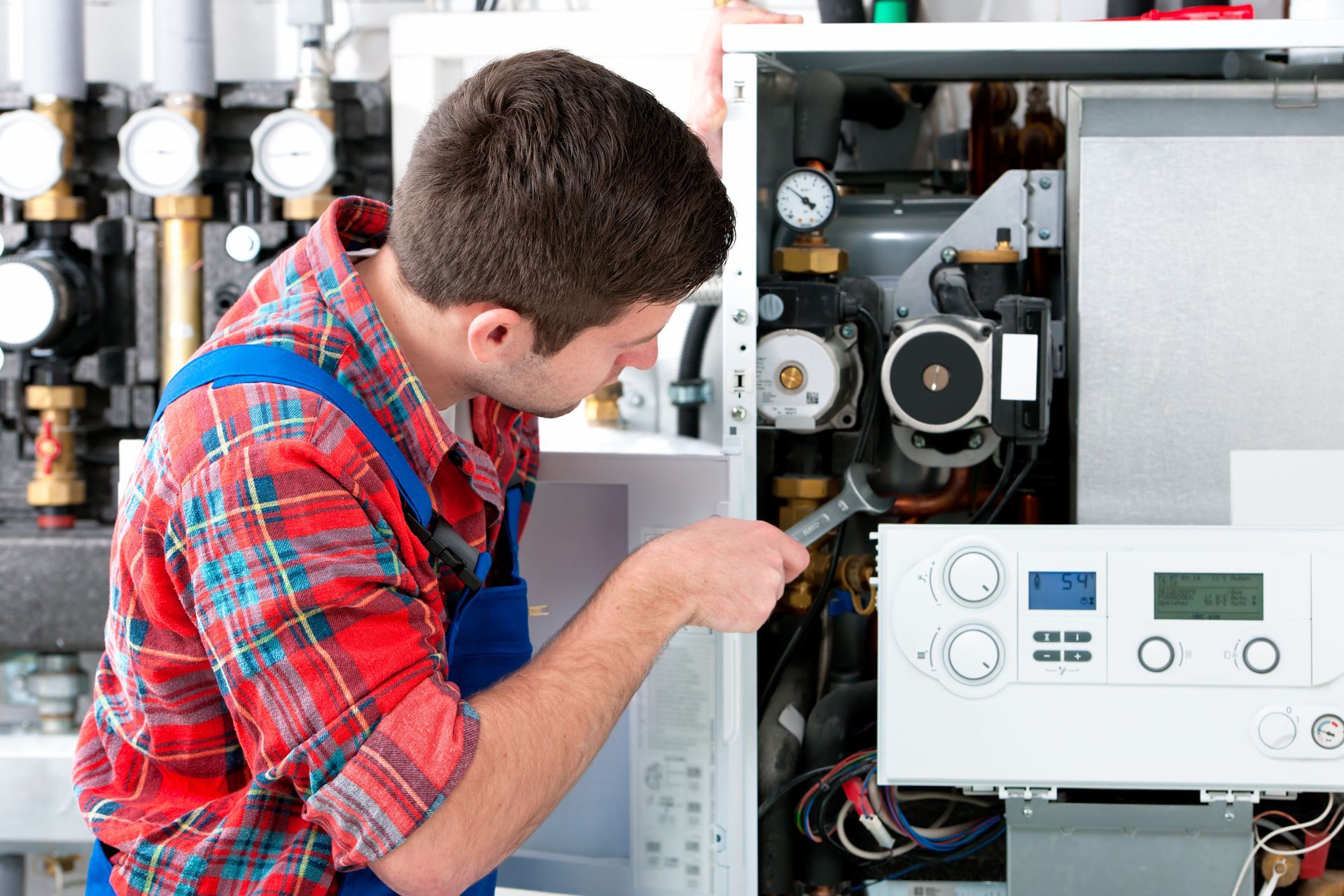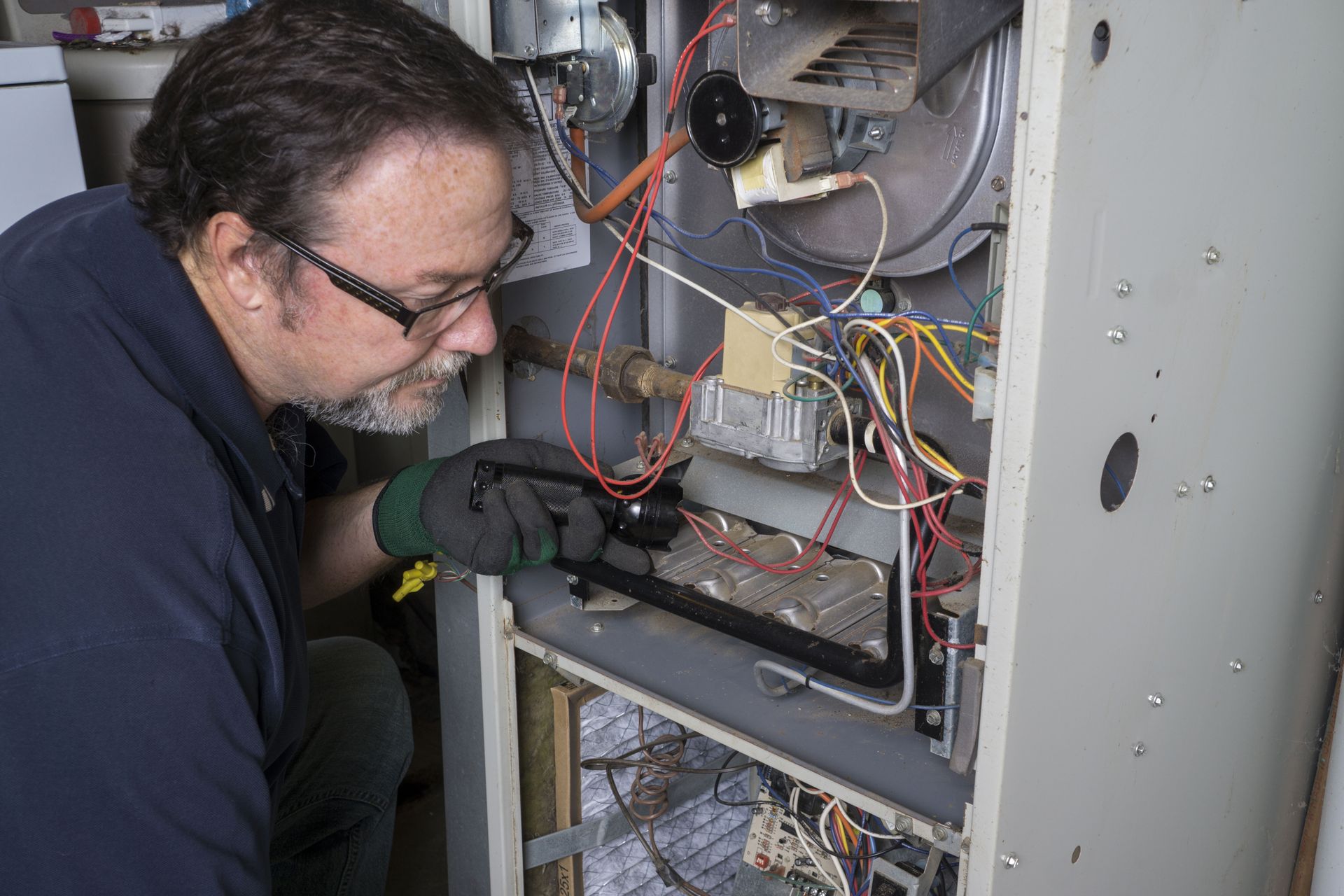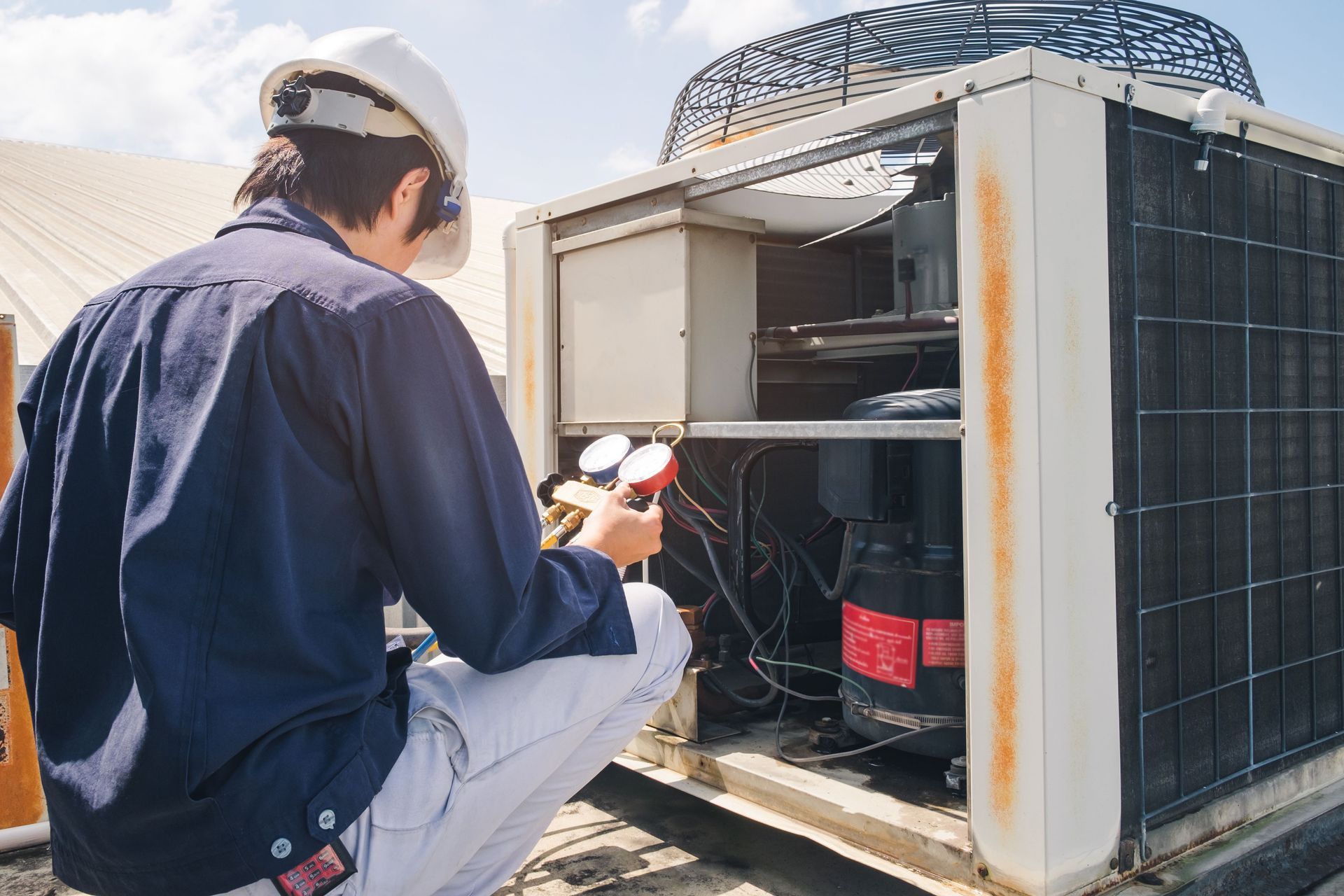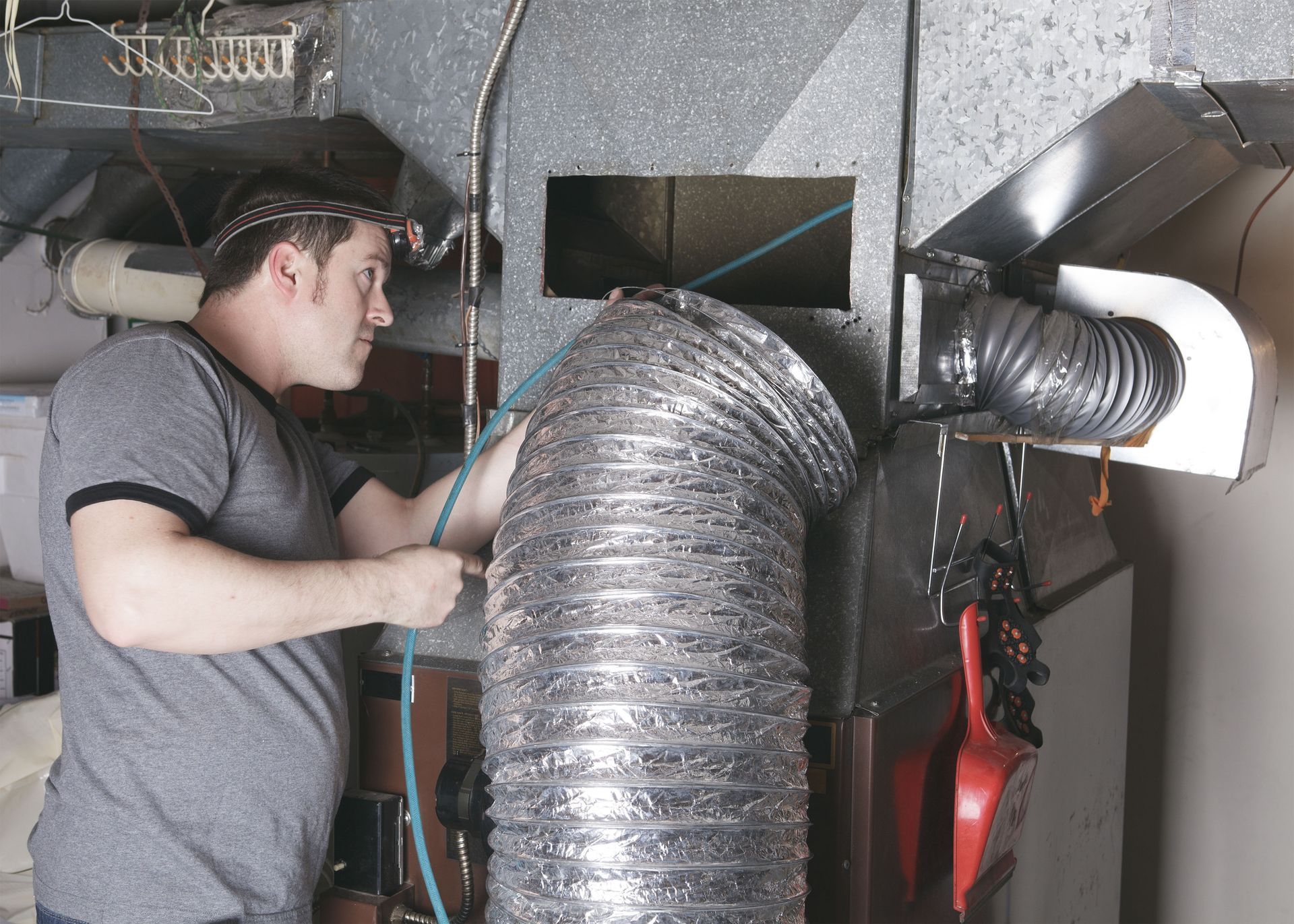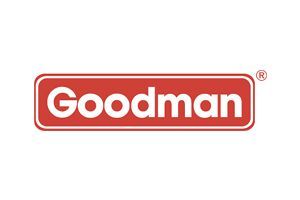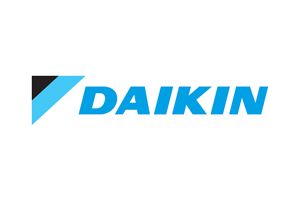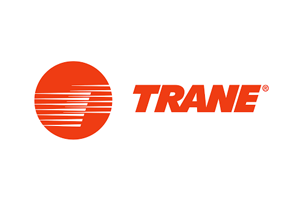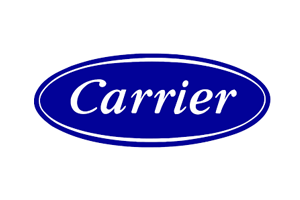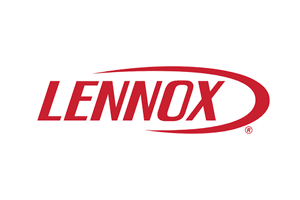November 18, 2025
In the ever-changing seasons, ensuring your heating, ventilation, and air conditioning (HVAC) system is operating efficiently is crucial. Not only does this ensure comfort, but it also prevents unexpected expenses. 87% of United States households have air conditioning, with central systems making up 75% of them, according to the Energy Information Association. This article presents a collection of smart tips to help minimize costly HVAC repair bills by maintaining your system effectively.
1. Regular Maintenance Checks
Regular maintenance checks are crucial to the longevity and performance of your HVAC system. Scheduling seasonal tune-ups ensures that your system is prepared for both the heating and cooling demands of different times of the year. During these tune-ups, qualified professionals can identify and resolve potential problems before they escalate into costly repairs. Moreover, routine evaluations can improve energy efficiency, leading to lower utility bills. Staying proactive about your HVAC maintenance helps prevent breakdowns and extends the lifespan of your system, ultimately saving you money.
Changing filters regularly is another vital aspect of HVAC repair. Filters trap dust, pollen, and other particles, preventing them from circulating through your home. A clogged filter can restrict airflow, forcing the system to work harder and increasing energy consumption. Most experts recommend changing filters every 1-3 months, depending on usage and the type of filter. By maintaining clean filters, you can reduce strain on the system, improve air quality, and avoid unnecessary repairs.
Inspecting thermostat functionality is equally significant for maintaining your HVAC system. A malfunctioning thermostat can lead to inefficient heating and cooling, causing discomfort and increased energy costs. It's essential to ensure that the thermostat is calibrated correctly and that there are no loose wires. Modern thermostats, especially programmable ones, offer better control over temperatures, allowing you to create schedules that align with your lifestyle. This not only improves comfort but also optimizes energy usage, contributing to lower utility bills.
2. Optimizing Thermostat Settings
Utilizing programmable thermostats can greatly enhance the efficiency of your HVAC system. These devices allow homeowners to set specific temperatures for different times of the day, reducing unnecessary energy consumption. By adjusting the thermostat according to your daily routine, you ensure that the system is not overworking when it's not needed. Moreover, many modern thermostats include smart technology to learn your preferences and make automatic adjustments. This level of control can significantly reduce your energy bills by ensuring the system operates only when needed.
Understanding ideal temperature ranges is also vital to maintaining an efficient HVAC system. It's essential to keep the thermostat settings within a range that provides comfort while minimizing energy use. For instance, during the summer, a comfortable setting might be around 78 degrees Fahrenheit, while in winter, 68 degrees Fahrenheit is often recommended. By adhering to these ideal ranges, you can avoid overloading the system, thus reducing the likelihood of potential breakdowns. Consistent thermostat settings also facilitate a stable indoor environment, enhancing overall comfort and reducing wear on your system.
Creating consistent schedules with your thermostat can enhance both comfort and efficiency. Regularly programmed settings ensure that your HVAC system functions optimally according to your daily and weekly routines. During periods when the home is unoccupied, such as work hours, you can set the system to operate less frequently, thereby saving energy. Moreover, by syncing thermostat settings with lifestyle changes—like vacation times—you avoid unnecessary heating or cooling. This practice not only contributes to cost savings but also places less strain on the HVAC system, enhancing its longevity.
3. Improving Airflow and Insulation
Sealing air leaks around the house plays a crucial role in maximizing the efficiency of your HVAC system. Small gaps and cracks often go unnoticed, yet they can lead to substantial energy loss. By sealing these leaks, you can ensure that heated or cooled air remains within your home, reducing the workload on your HVAC system. Improved sealing helps maintain a more consistent indoor temperature, contributing to enhanced comfort. By minimizing energy wastage through leak prevention, you can enjoy lower utility costs and a more efficient HVAC system.
Properly insulating ductwork is another significant factor that impacts HVAC efficiency. When ducts are inadequately insulated, they can lose heat or cool air as it moves through the system. In many homes, especially older ones, ensuring proper duct insulation can lead to improved energy efficiency. This adjustment helps prevent energy loss, decreasing overall system load and reducing power consumption. By maximizing the effectiveness of your duct system, you not only enhance efficiency but also reduce potential stress on the HVAC system, thereby minimizing repair costs.
Ensuring vents and registers are unobstructed is essential for maintaining optimal airflow. Blocked vents and registers can impede the HVAC system's ability to circulate air effectively throughout the home. It's important to regularly check these outlets for any blockages, such as furniture or drapery. Unobstructed airflow facilitates more efficient heating and cooling, ensuring that every part of your home receives adequate temperature control. Encouraging even and effective air distribution not only improves comfort levels but also optimizes system performance, reducing the likelihood of increased energy bills or repairs.
4. Maintaining Clean and Clear Systems
Keeping outdoor units clear of debris is essential for optimizing system performance and extending its lifespan. Outdoor units, often exposed to the elements, can quickly accumulate leaves, dirt, and other debris. Regularly cleaning these units helps ensure they can release heat efficiently, preventing overheating. By making this a routine task, you prevent potential blockages that could hamper the system's performance. Additionally, maintaining clear outdoor units allows the system to operate more efficiently, reducing wear and ultimately lessening the need for costly repairs.
Regularly cleaning evaporator and condenser coils is crucial for preserving the efficiency of your HVAC system. Coils play an essential role in the heat exchange process, and when dirty, they can diminish system performance. Clean coils contribute to better energy efficiency by ensuring proper heat absorption and expulsion. Regular HVAC repair and cleaning can significantly improve the system's operational parameters, leading to lower energy consumption. This simple but effective practice reduces strain on the system, thus minimizing the risk of wear and mechanical failure.
Checking and cleaning drain lines is an often overlooked, yet critical maintenance task. Clogged drain lines can result in water buildup, causing potential damage to your HVAC system and surrounding areas. By keeping these lines clear, you prevent moisture-related issues such as mold growth, reducing health risks and maintaining optimal system functionality. Ensuring proper drainage extends system life by preventing corrosion and other damage associated with excess moisture. Regular maintenance of drain lines allows your system to operate smoothly, contributing to energy savings and reduced repair bills.
5. Understanding System Limitations
Knowing the lifespan of your HVAC system is vital for planning future upgrades and avoiding costly HVAC repairs. Awareness of the system's age can help homeowners anticipate when a replacement may be more cost-effective than continual repairs. Regular evaluations, primarily when nearing the end of its lifecycle, can aid in deciding the best course of action. Keeping an eye on the system's longevity ensures timely upgrades, which can lead to improved efficiency and reduced repair costs.
Avoiding overworking the system is key to preventing unnecessary wear and potential failures. Continuous operation at capacity, especially during extreme temperatures, can stress the system and reduce its lifespan. It's crucial to ensure your HVAC system is appropriately sized and that your home's insulation and airflow are optimized. By following recommended operational guidelines, you maintain consistent performance levels without overburdening the system. Implementing measures to avoid overuse not only preserves the system but also prevents costly repairs and energy inefficiency.
By investing time and energy into diligent HVAC repair, optimizing system settings, and seeking professional help when necessary, you can significantly reduce the likelihood of facing costly repair bills. Proper care and timely upgrades to your HVAC system will ensure long-term efficiency, reliability, and comfort in your home. Implementing these strategies not only enhances the lifespan of your system but also contributes to energy savings, ensuring a better indoor environment year-round. Ultimately, committing to these smart practices forms a sound investment in the longevity and functionality of your HVAC system. For more information about the services that we offer, reach out to our incredible team at Service Champs Heating & Air today!
